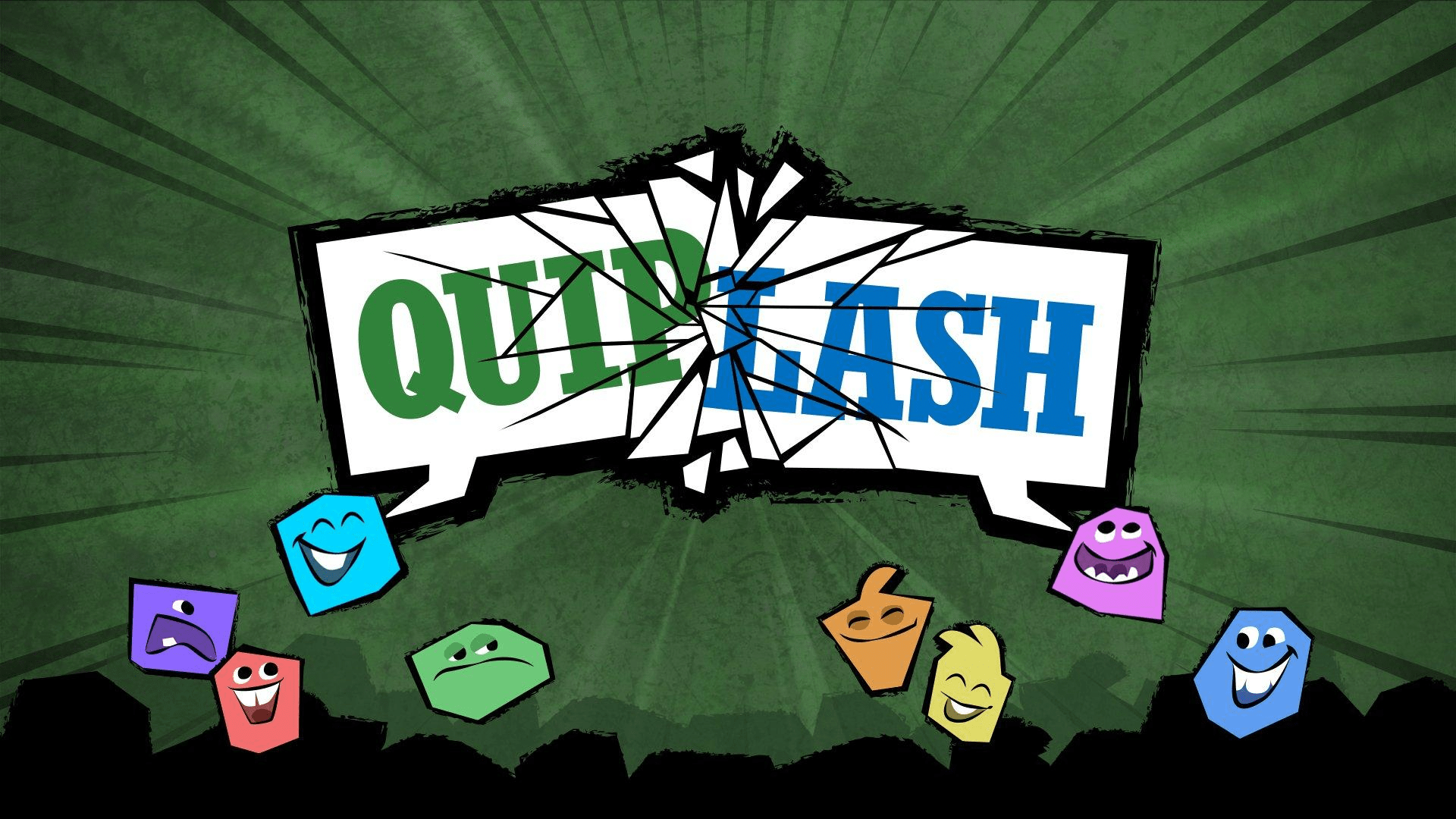This past week, I played Quiplash, one of the games featured on the Jackbox Party Pack 2 (created by Jackbox Games and available for play on the Nintendo Switch). The game has an ESRB Teen rating, and is marketed as a way to bring friends and family together for a casual and fun group gaming experience. And so, huddled in a group of new acquaintances and old friends alike, I played through the game to get a sense of how it navigates the mechanic of judging, and what dynamics this creates. Overall, I would argue that Quiplash frames judging as a way of celebrating player’s successes rather than underlining their failures, creating a dynamic where new friendships can flourish as existing relationships are rewarded.
In the game, two players’ “quips” are displayed on screen, and the group must judge which is funnier by awarding a vote which carries some number of points. Crucially, the names of the players who are being judged are not presented, which illustrates keen understanding on the part of the game’s developers. After all, if players could see who’s quips were being displayed at first, they might abuse the judging mechanic in order to prevent a leading player from winning the game. By keeping the quips anonymous, this creates a dynamic where players are more focused on the humor of the jokes rather than who delivered them—as the developers intended.
However, unlike other judging games (e.g. Cards Against Humanity or Apples to Apples) the game is not zero-sum. In other words, the player with less votes is still awarded points in most cases, framing the judging mechanic in a more positive light. For example, I noticed some players would often advocate for the quips who had gotten less votes, creating a dynamic where both players were celebrated, despite the outcome of the votes. In this way, the game promoted some solidarity among players, where some players would rush to defend the respective lines they voted for.
Another mechanic which helped inject positivity into the judging process was the system of rounds, where only two players were competing at any given time. At any given time, most of the players are not competing in the matchup on screen, allowing them to root for their favorite joke or support other players. Since they have no points to gain or lose in rounds where they sit out, the competitiveness starts to fade away. Compare this to games like Cards Against Humanity, or Apples to Apples, where each player competes in almost every round, crushing any incentive to root for another player.
With this implementation of the judging mechanic, Quiplash is able to achieve a dynamic where new friends and old friends alike can further the bonds between them. For example, during my playthrough, players started to use quips to make jokes about the other players they knew. These kinds of jokes, in turn, received a lot of points, causing players to get more comfortable lightly teasing one another. This resulted in the below quip, which got many points. By the end of the game, the group was very comfortable with each other, and a lot closer than we were at the start.

Overall, Quiplash demonstrates that judgment does not have to be a tool for competition alone, but can also help grow bonds between players. By making their points system non-zero sum, as well as only having two players up for judgment in any given round, judging becomes a tool for positivity and celebration of the other players. This in turn, helps achieve some of the main aims outlined by the developers: bringing people together for a fun gaming experience.




